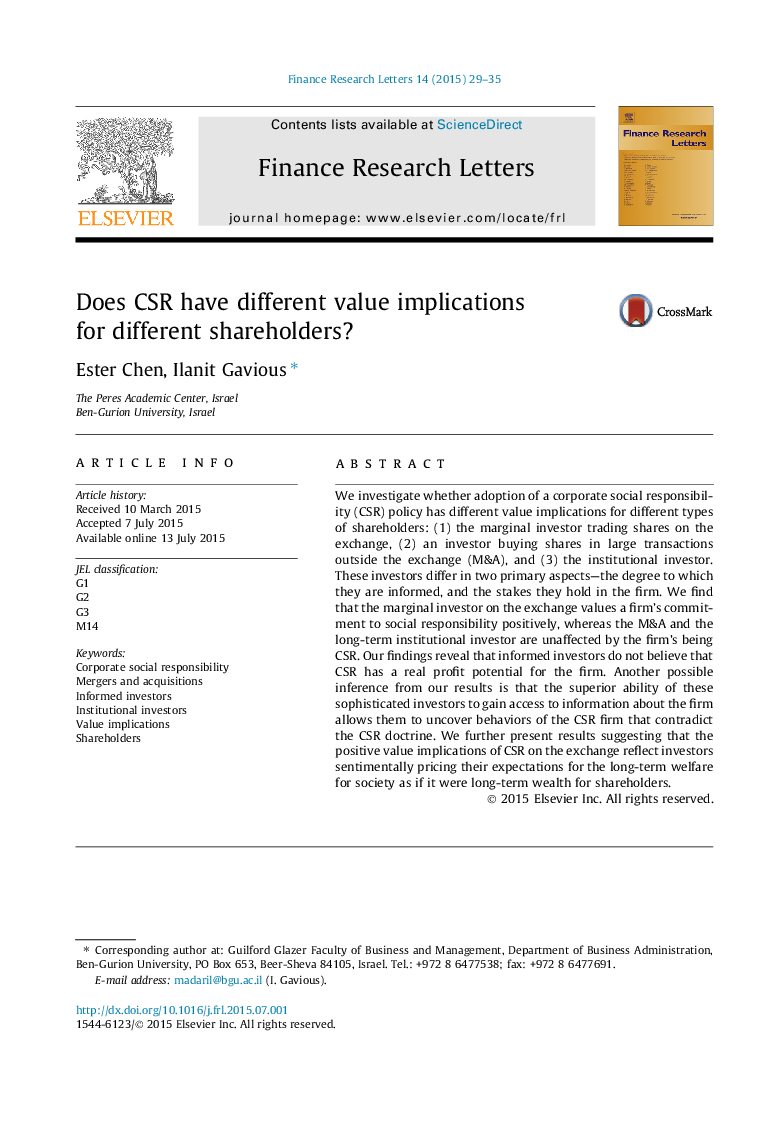| Article ID | Journal | Published Year | Pages | File Type |
|---|---|---|---|---|
| 5069525 | Finance Research Letters | 2015 | 7 Pages |
â¢We investigate whether the value implications of CSR differ between shareholders.â¢We find that the marginal investor on the exchange pays a premium for CSR.â¢Investment decisions of M&A and institutional investors are unaffected by CSR.â¢Informed investors do not view CSR as having a real profit potential for the firm.â¢The positive valuation of CSR on the exchange reflects a sentimental utility.
We investigate whether adoption of a corporate social responsibility (CSR) policy has different value implications for different types of shareholders: (1) the marginal investor trading shares on the exchange, (2) an investor buying shares in large transactions outside the exchange (M&A), and (3) the institutional investor. These investors differ in two primary aspects-the degree to which they are informed, and the stakes they hold in the firm. We find that the marginal investor on the exchange values a firm's commitment to social responsibility positively, whereas the M&A and the long-term institutional investor are unaffected by the firm's being CSR. Our findings reveal that informed investors do not believe that CSR has a real profit potential for the firm. Another possible inference from our results is that the superior ability of these sophisticated investors to gain access to information about the firm allows them to uncover behaviors of the CSR firm that contradict the CSR doctrine. We further present results suggesting that the positive value implications of CSR on the exchange reflect investors sentimentally pricing their expectations for the long-term welfare for society as if it were long-term wealth for shareholders.
